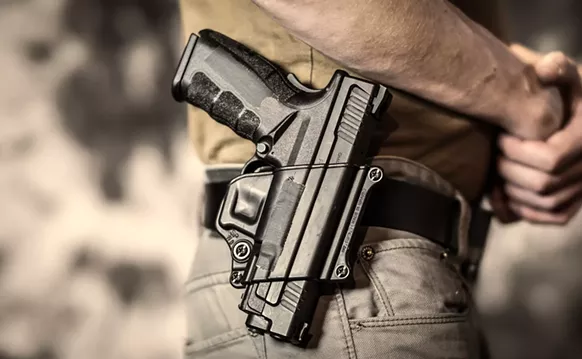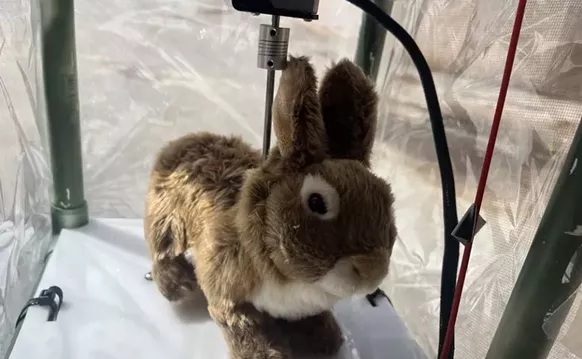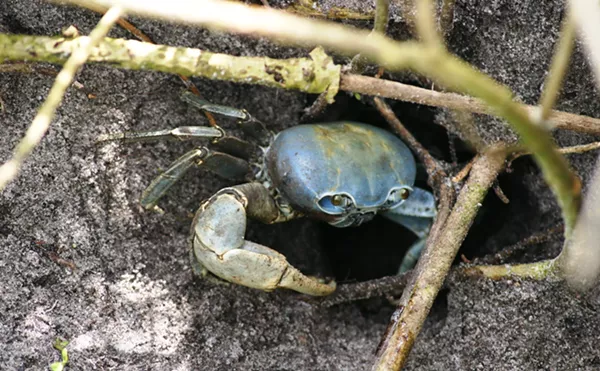Newly elected state Sen. Chris Smith always gets a visit from his Aunt Bertha before major elections. She likes to look at his voter's guide to get the lowdown on the issues.
Smith, a former Democratic House leader who was elected to the Senate on the same ballot as Barack Obama, says his aunt is usually amenable to his ideas — just not when it comes to gay issues.
Before the November 4 election, Smith told her he was opposed to Amendment 2, the statewide initiative to make gay marriage and civil unions unconstitutional.
Aunt Bertha balked.
"She's very active in our church, and she got upset," recalls Smith, one of Broward's top black leaders. "She said, 'God's law says that Adam can't marry Steve.' And the more I talked with her about it, the more upset she got."
Aunt Bertha played into one of the great ironies of last week's historic election. She was one of numerous civil rights-minded black voters who cast their ballots for Obama at the same time that they chose to deny gays and lesbians the right to marry. The anti-gay marriage measure passed statewide and garnered a majority of votes in every county in Florida but Monroe, which includes gay-friendly Key West.
Even in the alleged liberal bastions of Palm Beach, Broward, and Miami-Dade counties,
a majority voted for the measure. And the black vote weighed heavily in all of them.It's one of the great paradoxes in American politics. The black community, the most oppressed group in U.S. history, has traditionally comprised the most unfriendly demographic toward gays, arguably the second-most-discriminated-against group.
In short, it's time for blacks in America to wake up. The black community has gotten a free pass on its rampant homophobia, beginning with the denial of the AIDS problem until it ravaged their neighborhood. Gay activists have almost given up on trying to influence black America, but last Tuesday's vote shows that another tactic is overdue.
Bluntly put, blacks must be exposed on their homophobic attitudes and challenged on them.
The numbers, though roughly drawn, are overwhelming. While about 96 percent of black voters favored Obama, 70 percent of them were opposed to gay marriage, according to both pre-election and exit polls.
Let's break down Broward County. With nearly 200,000 registered black voters in Broward and a turnout of about 70 percent of them, polls suggest that nearly three-quarters of them voted in favor of the gay marriage ban.
Focus groups organized by opponents to Amendment 2 figured out early on that a large majority of blacks opposed gay marriage but that they, like Aunt Bertha, only become hardened in their resolve when someone tries to persuade them otherwise.
For that reason, Florida Red and Blue, a Miami-based group that raised $3.7 million to fight Amendment 2, largely left the black community alone with its outreach efforts. Instead, opponents chose to focus on black college students and young women, who have been found to be the most receptive to the cause.
Oakland Park activist S.F. Mahee worked as the Broward organizer for Florida Red and Blue. She is also a black lesbian who has urged the African-American community to take a stake in gay issues. She knew gay rights advocates faced challenges in the black community.
"Speculation is that the momentous turnout that Sen. Obama provided may have actually hurt us in the end when it came to the religious African-Americans that turned out," Mahee says. "If you can make the connection about discrimination, then African-Americans are overwhelmingly with us. But if someone else focuses on homosexuality, then we lose African-Americans."
Veteran gay activist and West Palm Beach lawyer Rand Hoch puts it in stark terms. "Black people have consistently been less supportive of gay and lesbian rights than any segment of the population in Florida," he says.
Sen. Smith, who lives in Fort Lauderdale with his wife, Desorae, and two kids, agrees, and he provides three reasons. "Religion, religion, and religion," he says. "Even pastors who I know and love and have supported for years, we got into deep arguments about it, and they didn't want me to make that recommendation [on Amendment 2]. I couldn't convince them. Religion plays a heavy part in it. Last Sunday, there were signs surrounding each church saying, 'Vote Yes on Two.' I went to every church from Boynton Beach to Fort Lauderdale, and at every church were those signs."
It didn't help that South Florida is home to the Rev. O'Neal Dozier, one of America's most virulently antigay black ministers. Dozier leads the Worldwide Christian Center in Pompano Beach, and he famously said that gays make God "want to puke." Like so many black ministers, he rallied his congregation against Amendment 2.
Elgin Jones, columnist for the black-owned Broward Times, largely agrees with Dozier's views. He shares the "social conservatism" that's a hallmark of black politics.
"Most people think that black folk are these bleeding-heart liberals, but that's not the case," says Jones, who voted to make gay marriage unconstitutional last week. "They are socially conservative. You wouldn't know it by who they vote for, but they vote that way because of things that are important to them: civil rights, jobs, health care. Not social issues."
Jones, a dogged journalist who has dug up a lot of corruption in black politics, says it's offensive to most blacks when their plight is compared to that of gays.
"When homosexuals try to use the blessing of those who are black to help their cause, it has failed, and it will continue to fail," he says. "If they are seeking rights, I don't think they will be successful comparing homosexuality to race. I think most people see it as a slight or an insult."
Jones concedes that many gays and lesbians seem to be born that way. But he compares them to people who seem to have a propensity for crime. He compares it to a trait he has to seek harsh revenge when someone has wronged him. "I was born with that. I was born in a family that has done a lot of violent things. But I was taught that was wrong, so I don't act on it. I think people are sometimes born with an urge to steal or to rob or to be lazy, but that doesn't mean you act on it because you have urges."
Translation: Homosexuality, Jones claims, is a crime that should be snuffed out.
Hoch, who is white, says he has seen, through his gay activism, an urge in the black community to deny that homosexuality exists. Smith adds that it's largely hidden under the "machismo" running through the male culture.
"In ethnic communities, really all ethnic communities, African-American, Cuban-American, there's a lot of machismo," he says. "So whenever you talk about anything gay, it goes beyond religion. Culturally, it was hard to embrace AIDS because AIDS was the 'faggot disease.' Once AIDS became a black disease, the church woke up."
Smith says he will probably co-sponsor a long-floundering gay-rights bill to outlaw discrimination against homosexuals in employment and housing. He has hopes that the measure will get a modest amount of support among blacks.
The senator says he believes blacks might also support his bid to overturn the ban on gay adoption. "That's a battle I think we can win," he says. "You have gay people serving as foster parents, and you have hundreds of thousands of kids that need adopting. That's a battle we can win to treat everyone equal."
But Smith admits that he has been met with a stone wall in trying to raise awareness about gay issues in his district. He says that when he gives speeches in black churches, he often brings up the issue, but it's never popular.
"If you think gay marriage is against God's law, then adultery is against God's law too," the senator says. "Are you going to make it a crime to have an affair? You can't legislate all of God's law. When I mention that, I get some agreement, but that's only if I can get to that phase of the argument. Usually, I get shut down before I get there."
For Mahee, it's understandably more personal than that. She says that when she got up on the morning after the election, her first impulse was to flee the state. Then she realized that Arizona and California, one of the nation's more progressive states, had passed the same initiative on the same day.
"I am in absolute and complete awe," she says. "I am in awe that we can elect the first African-American president and that on the same day, we can write discrimination into the state Constitution. Our education is at the bottom of the heap. We have a state House that just had to apologize for its participation in slavery last session. We have a gay adoption ban. I am afraid Florida has become in this millennium what Mississippi was to the civil rights movement."
Smith, though, says the irony is that the black man who was elected to the White House is, like him, sympathetic to gay causes — though not gay marriage itself.
"In Barack's speech, he mentioned the people, and he said gay and straight," Smith remembers. "He's the new president of the United States, a black man, a religious black man. Hell, he sat in Rev. Wright's church, and he said gay and straight. That's something that gives me hope."
Click here to send a letter to the editor.












